Charles E W Bean, Diaries, AWM38 3DRL 606/252/1 - 1918 - 1935 - Part 14
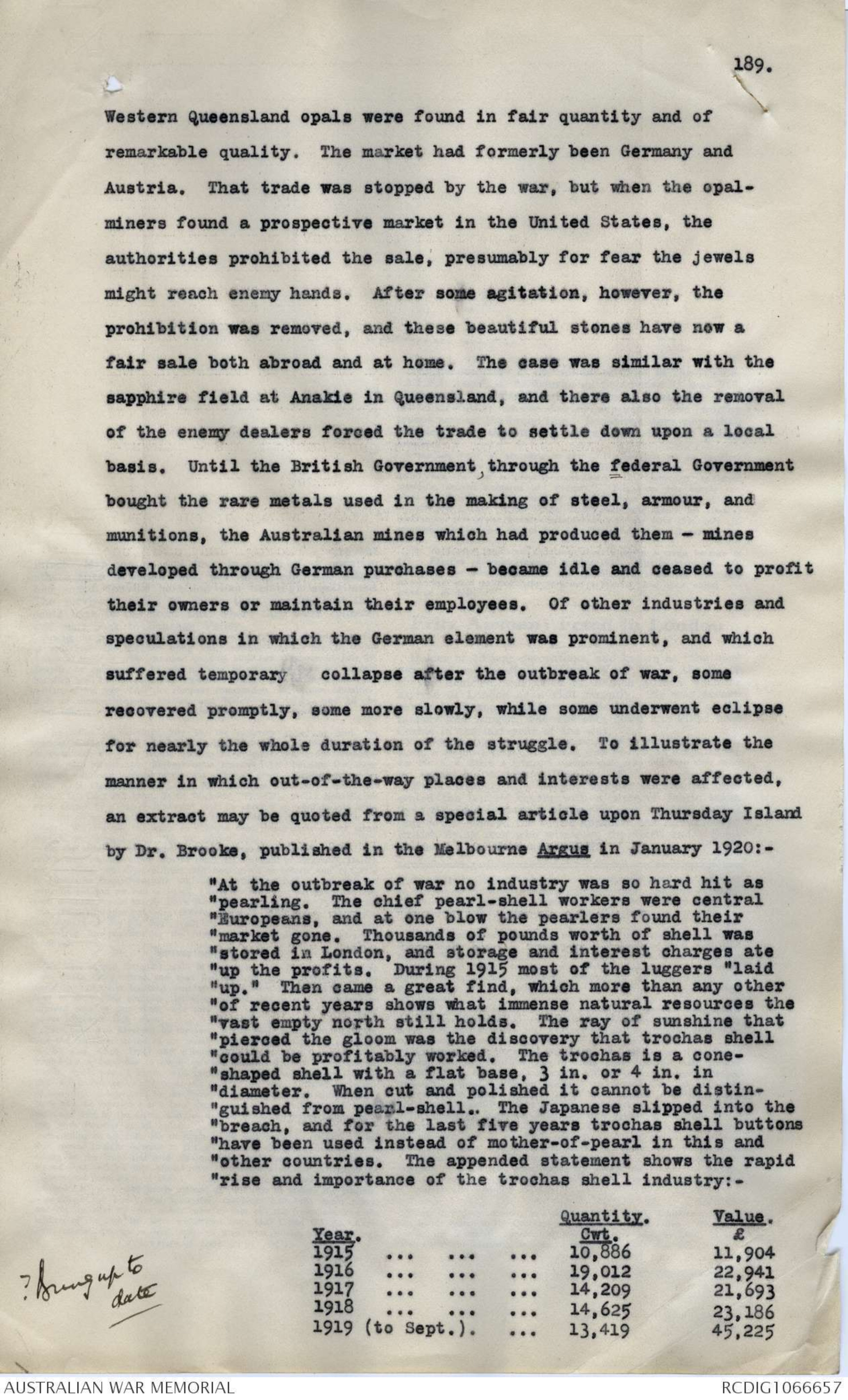
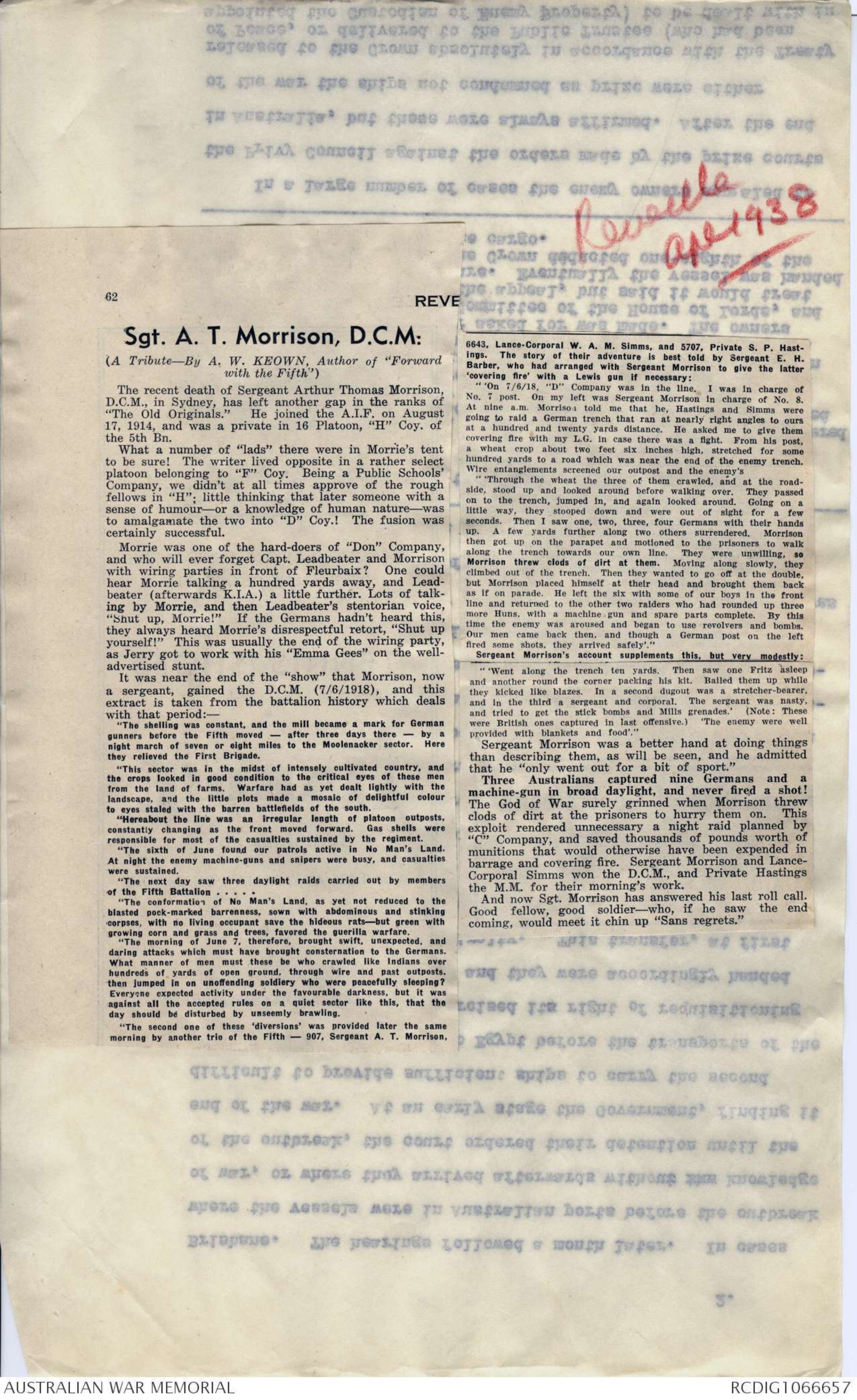
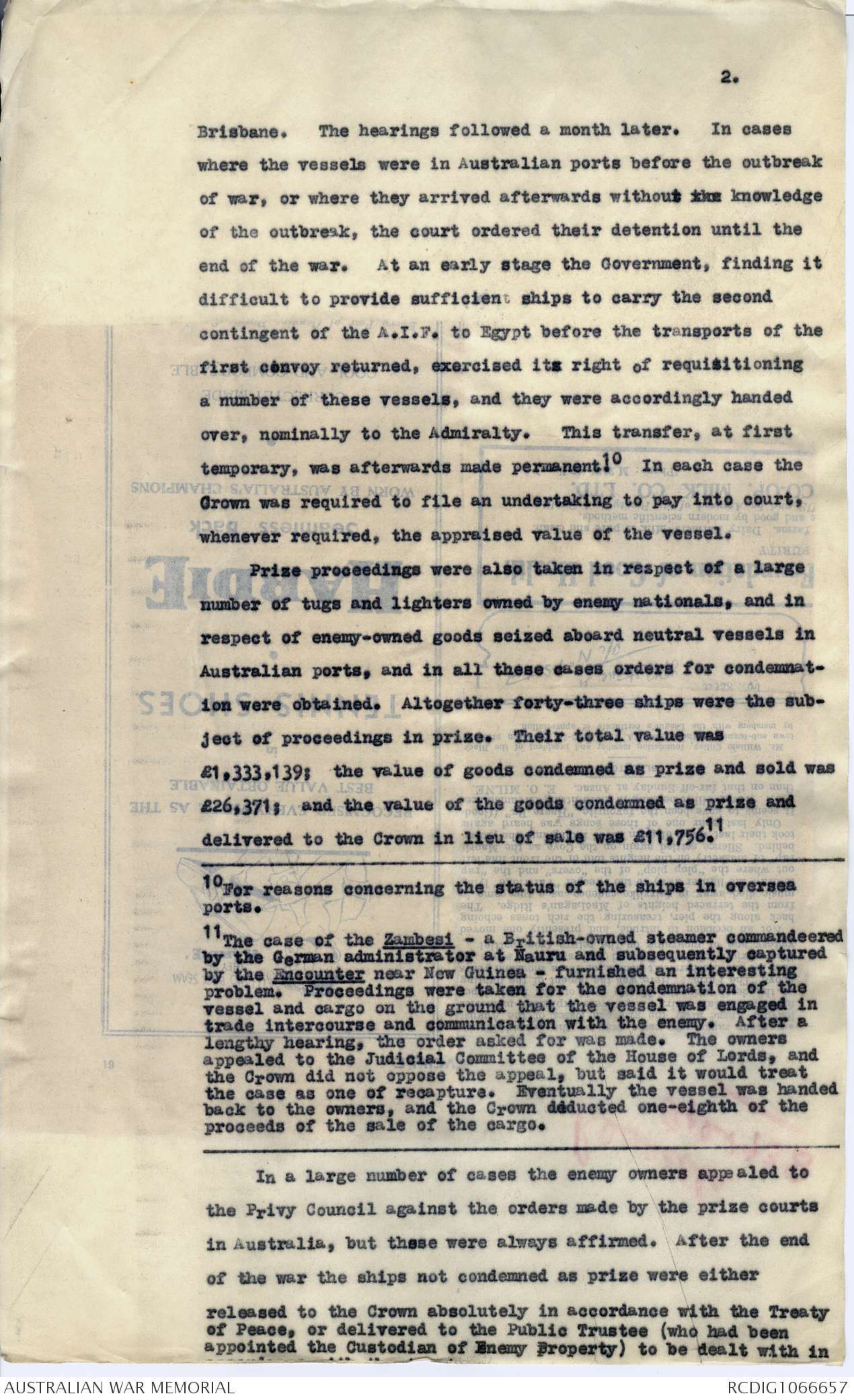
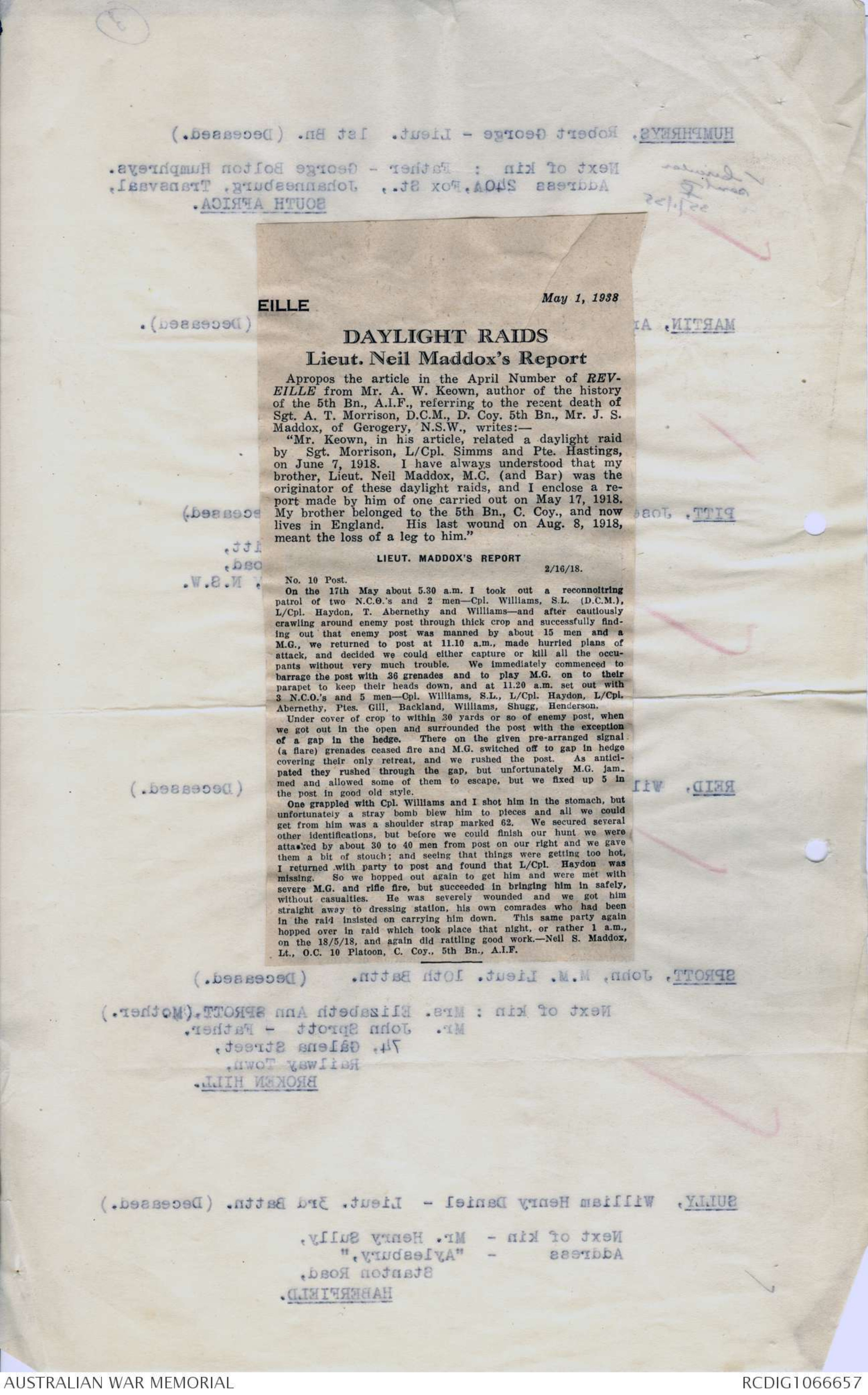
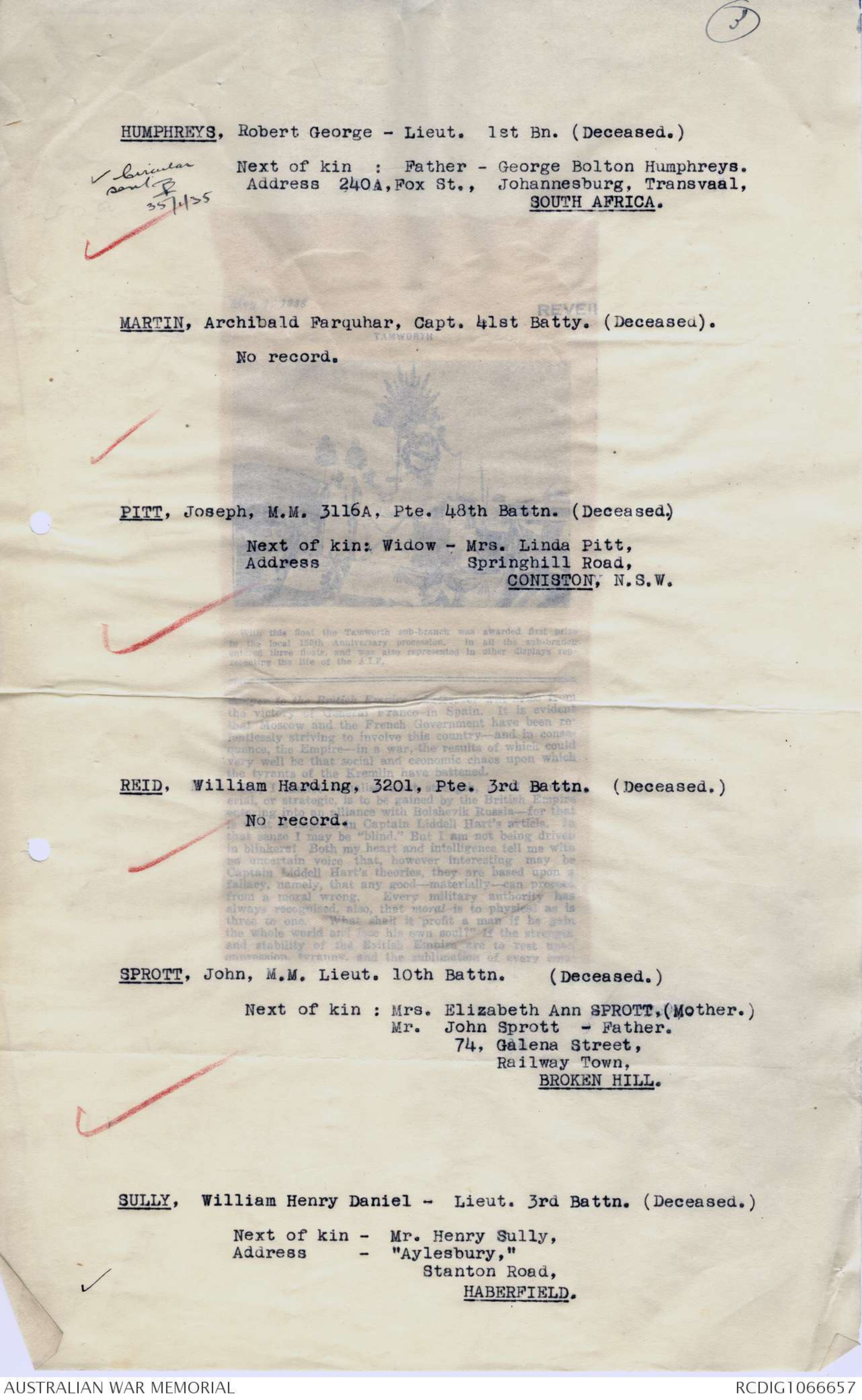
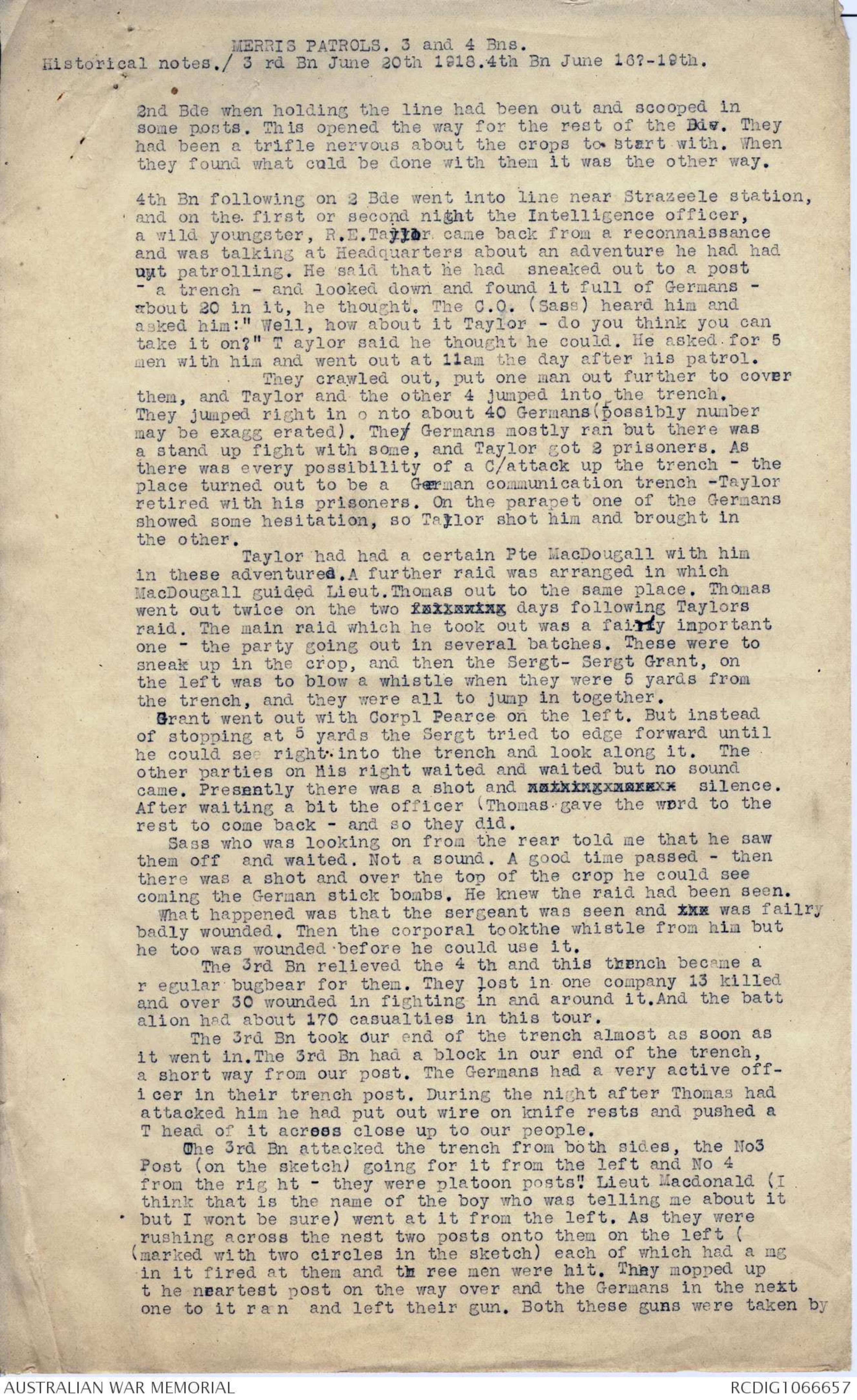
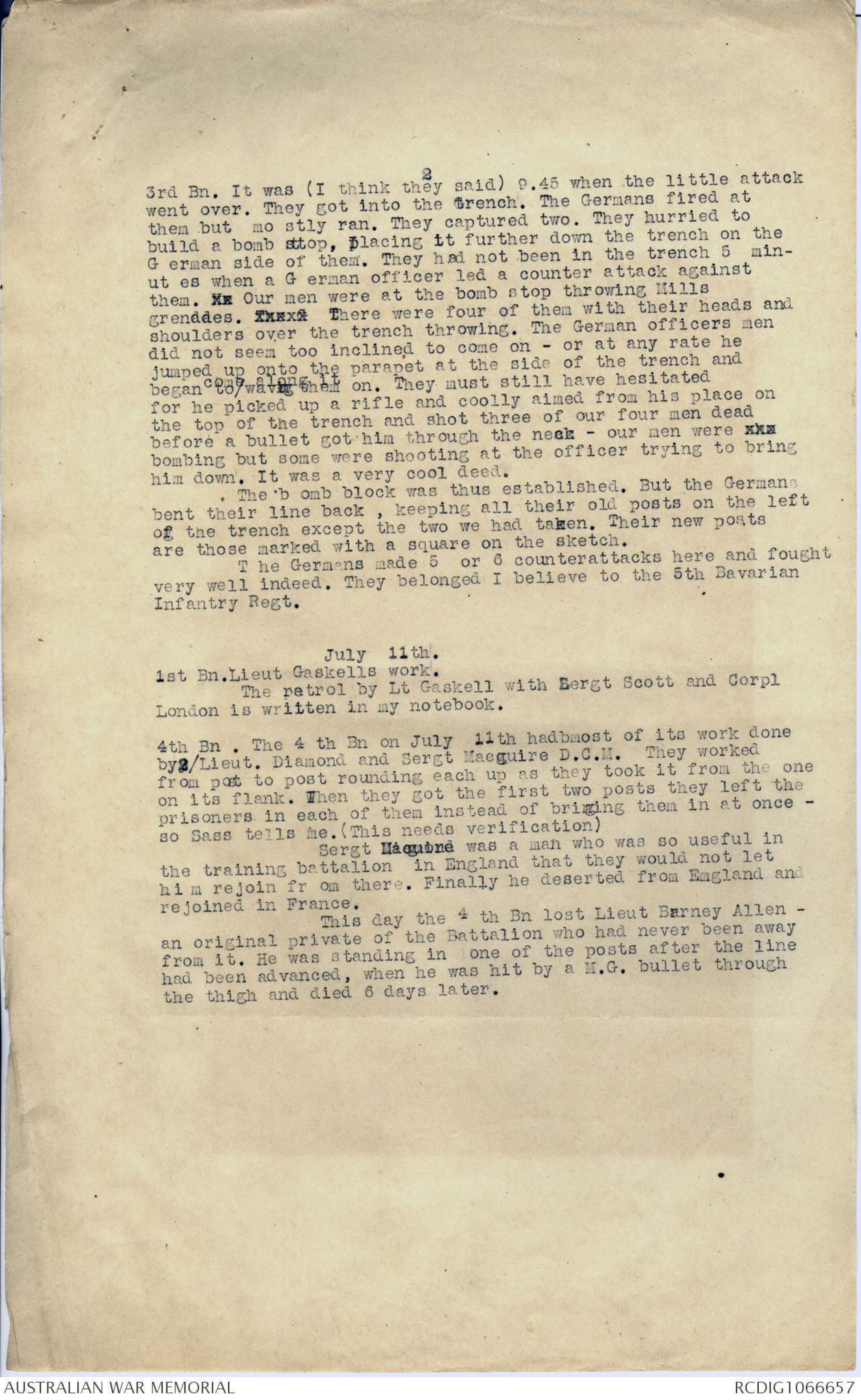
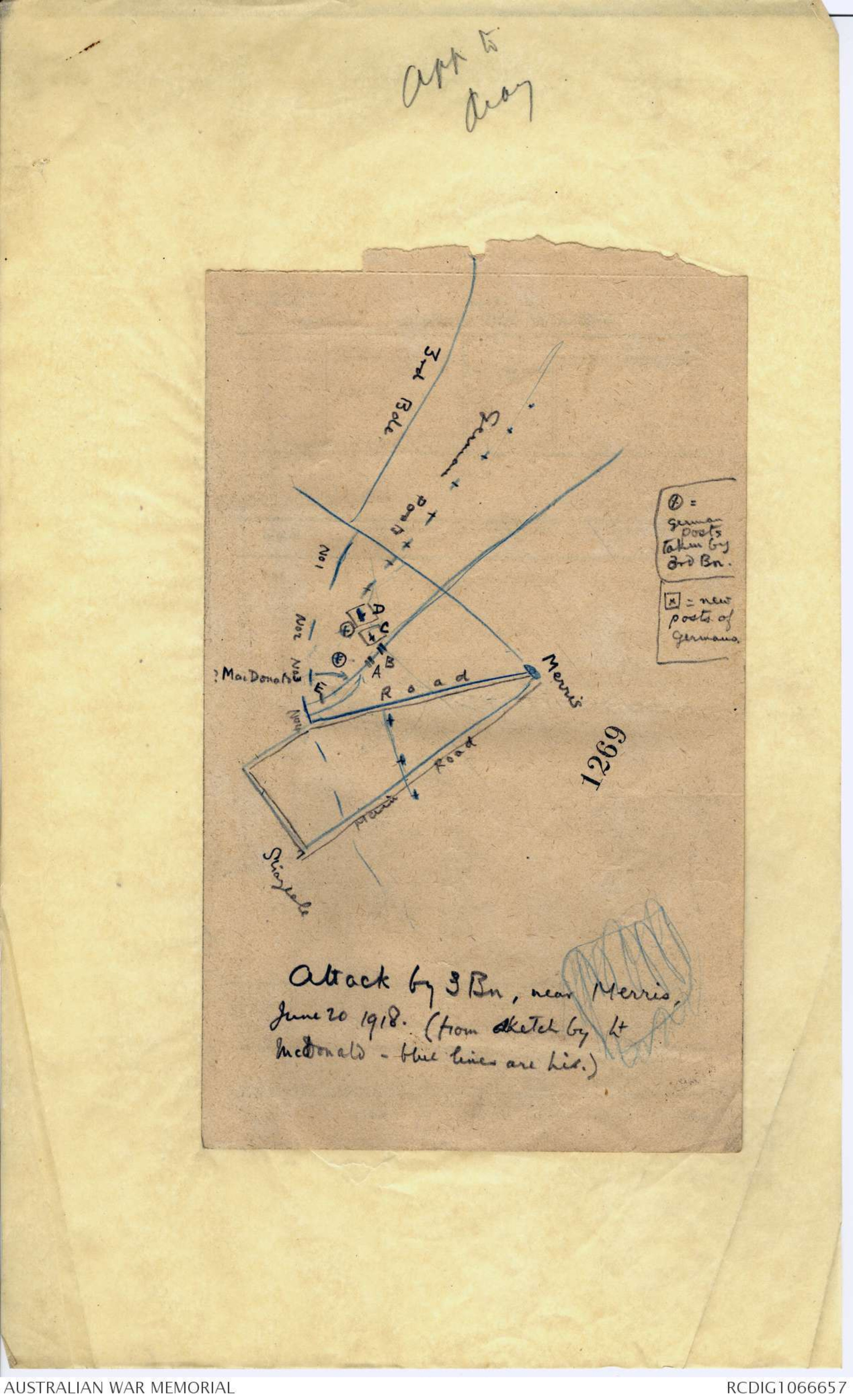
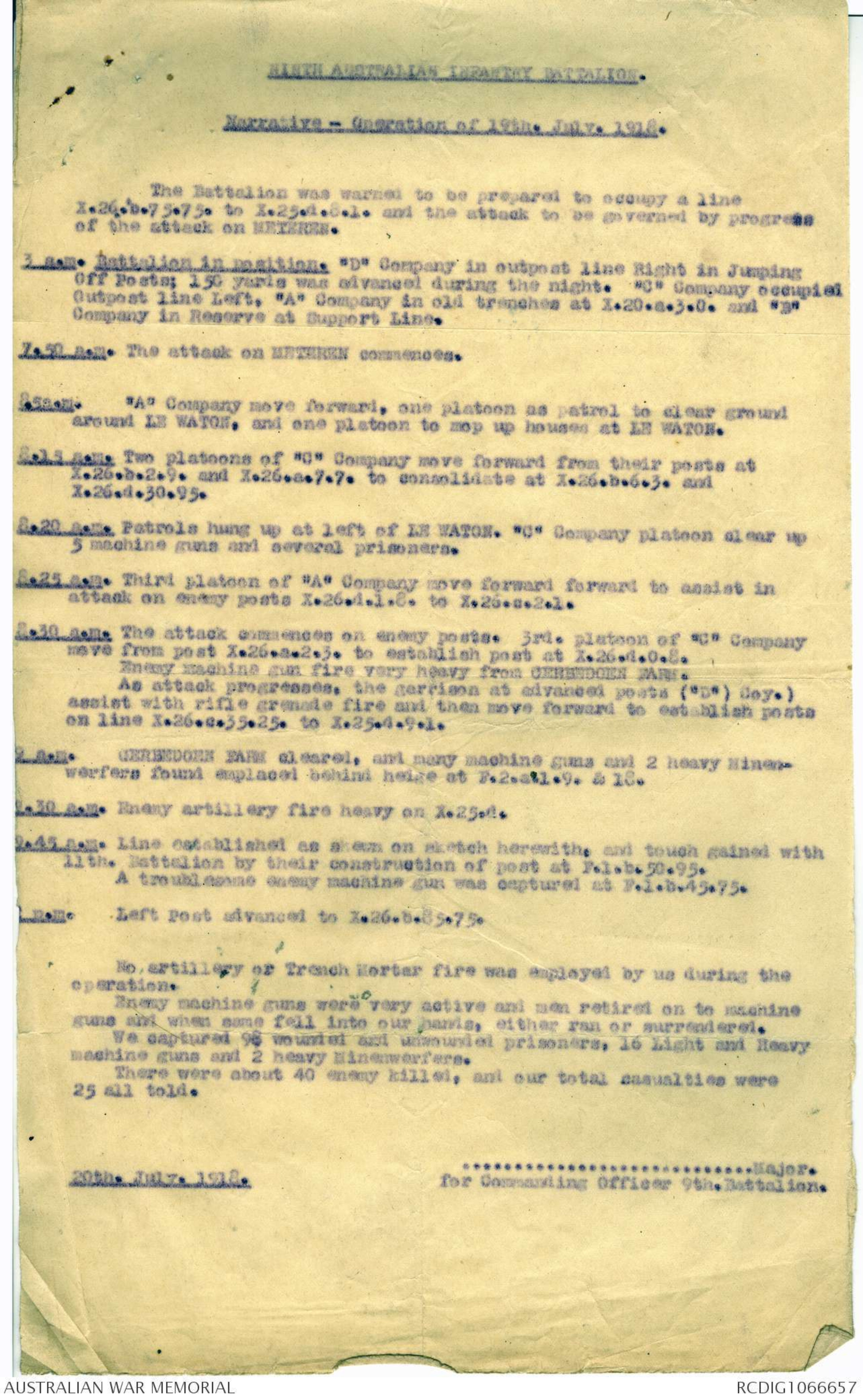
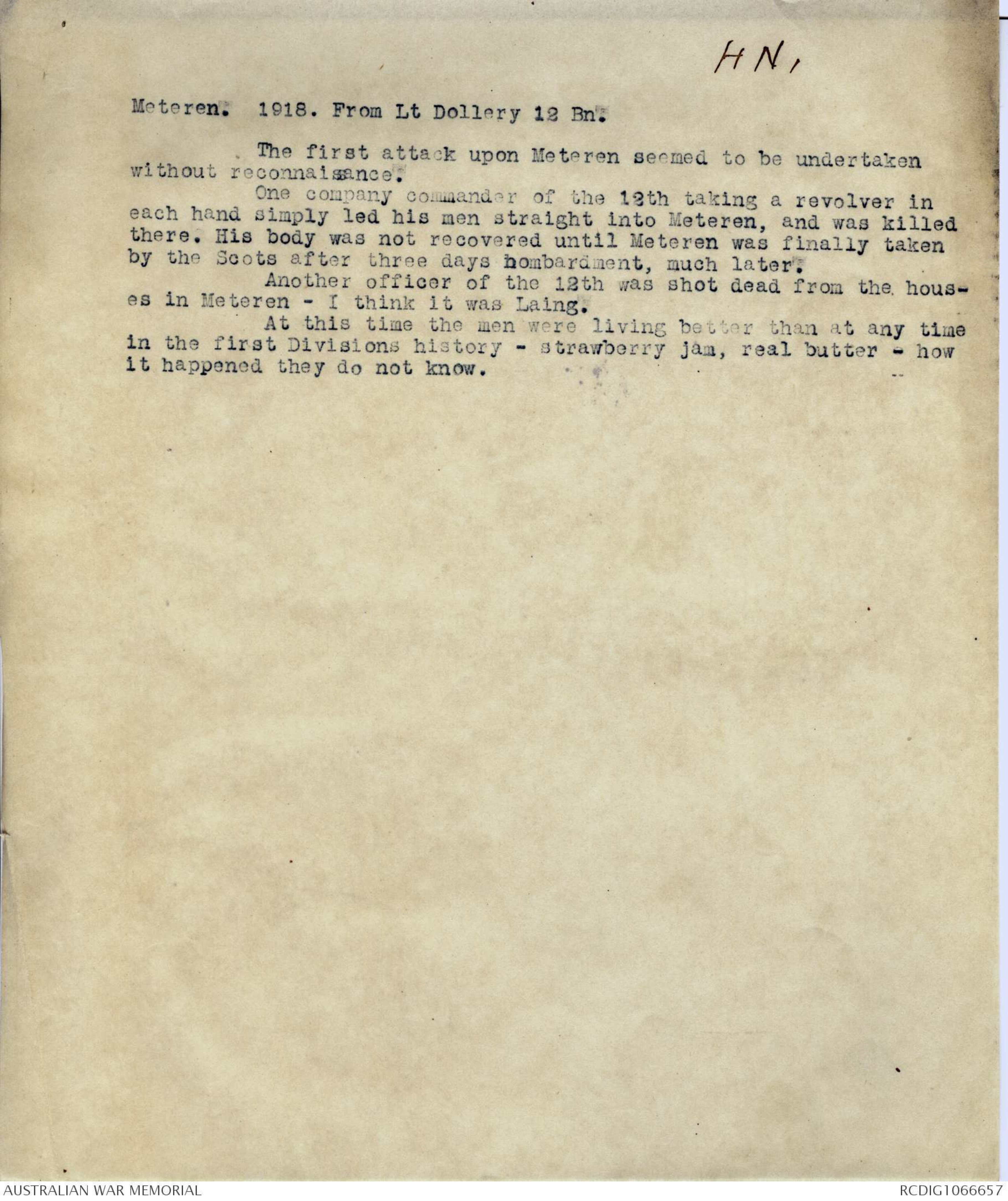
189.
Western Queensland opals were found in fair quantity and of
remarkable quality. The market had formerly been Germany and
Austria. That trade was stopped by the war, but when the opal-
miners found a prospective market in the United States, the
authorities prohibited the sale, presumably for fear the jewels
might reach enemy hands. After some agitation, however, the
prohibition was removed, and these beautiful stones have now a
fair sale both abroad and at home. The case was similar with the
sapphire field at Anakie in Queensland, and there also the removal
of the enemy dealers forced the trade to settle down upon a local
basis. Until the British Government, through the federal Government
bought the rare metals used in the making of steel, armour, and
munitions, the Australian mines which had produced them - mines
developed through German purchases - became idle and ceased to profit
their owners or maintain their employees. Of other industries and
speculations in which the German element was prominent, and which
suffered temporary collapse after the outbreak of war, some
recovered promptly, some more slowly, while some underwent eclipse
for nearly the whole duration of the struggle. To illustrate the
manner in which out-of-the-way places and interests were affected,
an extract may be quoted from a special article upon Thursday Island
by Dr. Brooke, published in the Melbourne Argus in January 1920:-
"At the outbreak of war no industry was so hard hit as
"pearling. The chief pearl-shell workers were central
"Europeans, and at one blow the pearlers found their
"market gone. Thousands of pounds worth of shell was
"stored in London, and storage and interest charges ate
"up the profits. During 1915 most of the luggers "laid
"up." Then came a great find, which more than any other
"of recent years shows what immense natural resources the
"vast empty north still holds. The ray of sunshine that
"pierced the gloom was the discovery that trochas shell
"could be profitably worked. The trochas is a cone-
"shaped shell with a flat base, 3 in. or 4 in. in
"diameter. When cut and polished it cannot be distinguished
"from pearl-shell. The Japanese slipped into the
"breach, and for the last five years trochas shell buttons
"have been used instead of mother-of-pearl in this and
"other countries. The appended statement shows the rapid
"rise and importance of the trochas shell industry: -
| Quantity. | Value. | |||
| Year. | Cwt. | £ | ||
| 1915 | . . . . . . | . . . | 10,886 | 11,904 |
| 1916 | . . . . . . | . . . | 19,012 | 22,941 |
| 1917 | . . . . . . | . . . | 14,209 | 21,693 |
| 1918 | . . . . . . | . . . | 14,625 | 23,186 |
| 1919 | (to Sept.) . | . . . | 13,419 | 45,225 |
[* ? Bring up to
date *]
Reveille
Apr 1938
62 REVE
Sgt. A. T. Morrison, D.C.M:
(A Tribute—By A. W. KEOWN, Author of "Forward
with the Fifth")
The recent death of Sergeant Arthur Thomas Morrison,
D.CM, in Sydney, has left another gap in the ranks of
"The Old Originals." He joined the A.I.F. on August
17, 1914, and was a private in 16 Platoon, "H" Coy. of
the 5th Bn.
What a number of "lads" there were in Morrie's tent
to be sure! The writer lived opposite in a rather select
platoon belonging to "F” Coy. Being a Public Schools'
Company, we didn't at all times approve of the rough
fellows in "H"; little thinking that later someone with a
sense of humour—or a knowledge of human nature—was
to amalgamate the two into "D" Coy.! The fusion was
certainly successful.
Morrie was one of the hard-doers of "Don” Company,
and who will ever forget Capt. Leadbeater and Morrison
with wiring parties in front of Fleurbaix? One could
hear Morrie talking a hundred yards away, and Leadbeater
(afterwards K.I.A.) a little further. Lots of talking
by Morrie, and then Leadbeater's stentorian voice,
"Shut up, Morrie!" If the Germans hadn't heard this,
they always heard Morrie's disrespectful retort, "Shut up
yourself!" This was usually the end of the wiring party,
as Jerry got to work with his "Emma Gees" on the well-
advertised stunt.
It was near the end of the "show" that Morrison, now
a sergeant, gained the D.C.M. (7/6/1918), and this
extract is taken from the battalion history which deals
ith that period:—
"The shelling was constast, and the mill became a mark for German
gunners before the Fifth moved — after three days there — by a
night march of seven or eight miles to the Moolenacker sector. Here
they relieved the First Brigade.
"This sector was the midst of intensely cultivated country, and
the crops looked in good condition to the critical eyes of these men
from the land of farms. Warfare had as yet dealt lightly with the
landscape, and the little plots made a mosaic of delightful colour
to eyes staled with the barren battlefields of the south.
"Hereabouts the line was an irregular length of platoon outposts,
constantly changing as the front moved forward. Gas shells were
responsible for most of the casualties sustained by the regiment.
"The sixth of June found our patrols active in No Man's Land.
At night the enemy machine-guns and snipers were busy, and casualties
were sustained.
"The next day saw three daylight raids carried out by members
of the Fifth Battalion . . . . .
"The conformation, of No Man's Land, as yet not reduced to the
blasted pock-marked barrenness, sown with abomlnous and stinking
corpses, with no living occupant save the hideous rats—but green with
growing corn and grass and trees, favoured the guerrilla warfare.
"The morning of Jusn 7, therefore, brought swift, unexpected, and
daring attacks which must have brought consternation to the Germans.
What manner of men must these be who crawled like Indians over
hundreds of yards of open ground, through wire and past outposts.
then jumped in on unoffending soldiery who were peacefully sleeping?
Everyone expected activity under the favourable darkness, but it was
against all the accepted rules on a quiet sector like this, that the
day should be disturbed by unseemly brawling.
"The second one of these 'diversions' was provided later the same
morning by another trio of the Fifth — 907, Sergeant A T. Morrison,
6643. Lance-Corporal W. A. M. Simms, and 5707. Private S. P. Hastings.
The story of their adventure is best told by Sergeant E. H.
Barber, who had arranged with Sergeant Morrlson to give the latter
'covering fire' with a Lewis qun if necessary:
"'On 7/6/18, "D" Company was in the line. I was in change of
No. 7 post. On my left was Sergeant Morrison in charge of No. 8.
At nine a.m. Morrison told me that he, Hastings and Simms were
going to raid a German trench that ran at nearly right angles to ours
at a hundred and twenty yards distance. He asked me to give them
covering fire with my L.G. In case there was a fight. From his post,
a wheat crop about two feet six inches high, stretched for some
hundred yards to a road which was near the end of the enemy trench.
Wire entanglements screened our outpost and the enemy's
"'Through the wheat the three of them crawled, and at the roadside,
stood up and looked around before walking over. They passed
on to the trench, jumped in, and again looked around. Going on a
little way, they stooped down and were out of sight for a few
seconds. Then I saw one, two, three, four Germans with their hands
up. A few yards further along two others surrendered. Morrison
then got up on the parapet and motioned to the prisoners to walk
along the trench towards our own line. They were unwilling, so
Morrison threw clods of dirt at them. Moving along slowly, they
climbed out of the trench. Then they wanted to go off at the double,
but Morrison placed himself at their head and brought them back
as on parade. He left the six with some of our boys in the front
line and returned to the other two raiders who had rounded up three
more Huns, with a machine gun and spare parts complete. By this
time the enemy was aroused and began to use revolvers and bombs.
Our men came back then, and though a German post on the left
fired some shots, they arrived safely'."
Sergeant Morrison's. account supplements this, but very modestly:
"Went along the trench ten yards. Then saw one Fritz asleep
and another round the corner packing his kit. Bailed them up while
they kicked like blazes. In a second dugout was a stretcher-bearer,
and in the third a sergeant and corporal. The sergeant was nasty,
and tried to get the stick bombs and Mills grenades.' (Note: These
were British ones captured in last offensive.) 'The enemy were well
provided with blankets and food'."
Sergeant Morrison was a better hand at doing things
than describing them, as will be seen, and he admitted
that he "only went out for a bit of sport."
Three Australans captured nine Germans and a
machine-gun in broad daylght, and never fired a shot!
The God of War surely grinned when Morrison threw
clods of dirt at the prisoners to hurry them on. This
exploit rendered unnecessary a night raid planned by
"C" Company, and saved thousands of pounds worth of
munitions that would otherwise have been expended in
barrage and covering fire. Sergeant Morrison and Lance-
Corporal Simms won the D.C.M, and Private Hastings
the M.M. for their morning's work.
And now Sgt. Morrison has answered his last roll call.
Good fellow, good soldier—who, if he saw the end
coming, would meet it chin up "Sans regrets."
2.
Brisbane. The hearings followed a month later. In cases
where the vessels were in Australian ports before the outbreak
of war, or where they arrived afterwards without the knowledge
of the outbreak, the court ordered their detention until the
end of the war. At an early stage the Government, finding it
difficult to provide sufficient ships to carry the second
contingent of the A.I.F. to Egypt before the transports of the
first convoy returned, exercised its right of requisitioning
a number of these vessels, and they were accordingly handed
over, nominally to the Admiralty. This transfer, at first
temporary, was afterwards made permanent.10 In each case the
Crown was required to file an undertaking to pay into court,
whenever required, the appraised value of the vessel.
Prize proceedings were also taken in respect of a large
number of tugs and lighters owned by enemy nationals, and in
respect of enemy-owned goods seized aboard neutral vessels in
Australian ports, and in all these cases orders for condemnation
were obtained. Altogether forty-three ships were the subject
of proceedings in prize. Their total value was
£1,333,139; the value of goods condemned as prize and sold was
£26,371; and the value of the goods condemned as prize and
delivered to the Crown in lieu of sale was £11,756.11
—————————
10For reasons concerning the status of the ships in oversea
ports.
11The case of the Zambesi - a British-owned steamer commandeered
by the German administrator at Nauru and subsequently captured
by the Encounter near New Guinea - furnished an interesting
problem. Proceedings were taken for the condemnation of the
vessel and cargo on the ground that the vessel was engaged in
trade intercourse and communication with the enemy. After a
lengthy hearing, the order asked for was made. The owners
appealed to the Judicial Committee of the House of Lords, and
the Crown did not oppose the appeal, but said it would treat
the case as one of recapture. Eventually the vessel was handed
back to the owners, and the Crown deducted one-eighth of the
proceeds of the sale of the cargo.
—————————
In a large number of cases the enemy owners appealed to
the Privy Council against the orders made by the prize courts
in Australia, but these were always affirmed. After the end
of the war the ships not condemned as prize were either
released to the Crown absolutely in accordance with the Treaty
of Peace, or delivered to the Public Trustee (who had been
appointed the Custodian of Enemy property) to be dealt with in
EILLE May 1, 1938
DAYLIGHT RAIDS
Lieut. Neil Maddox's Report
Apropos the article in the April Number of REVEILLE
from Mr. A. W. Keown, author of the history
of the 5th Bn. A.I.F., referring to the recent death of
Sgt. A. T. Morrison, D.C.M., D. Coy. 5th Bn., Mr. J. S.
Maddox, of Gerogery, N.S.W., writes:—
"Mr. Keown, in his article, related a daylght raid
by Sgt. Morrison, L/Cpl. Simms and Pte. Hastings,
on June 7, 1918. I have always understood that my
brother, Lieut. Neil Maddox, M.C. (and Bar) was the
originator of these daylight raids, and I enclose a report
made by him of one carried out on May 17, 1918.
My brother belonged to the 5th Bn. C. Coy, and now
lives in England. His last wound on Aug. 8, 1918,
meant the loss of a leg to him."
LIEUT. MADDOX'S REPORT
2/16/18.
No. 10 Post.
On the 17th May about 5.30 a.m. I took out a reconnoitring
patrol of two N.C.O.'s and 2 men—Cpl. Williams, S.L. (D.CM),
L/Cpl. Haydon, T. Abernethy and Williams—and after cautiously
crawling around enemy post through thick crop and successfully finding
out that enemy post was manned by about 15 men and a
M.G., we returned to post at 11.10 a.m., made hurried plans of
attack, and decided we could either capture or kill all the occupants
without very much trouble. We immediately commenced to
barrage the post with 36 grenades and to play M.G. on to their
parapet to keep their heads down, and at 11.20 a.m. set out with
3 N.C.O.'s and 5 men—Cpl. Williams, S.L., L/Cpl. Haydon. L/Cpl.
Abernethy, Ptes. Gill, Backland, Willams, Shugg, Henderson.
Under cover of crop to within 30 yards or so of enemy post, when
we got out in the open and surrounded the post with the exception
of a gap in the hedge. There on the given pre-arranged signal
(a flare) grenades ceased fire and M.G. switched off to gap in hedge
covering their only retreat, and we rushed the post. As anticipated
they rushed through the gap, but unfortunately M.G. jammed
and allowed some of them to escape, but we fixed up 5 in
the post in good old style.
One grappled with Cpl. Williams and I shot him in the stomach, but
unfortunately a stray bomb blew him to pieces and all we could
get from him was a shoulder strap marked 62. We secured several
other identifications, but before we could finish our hunt we were
attacked by about 30 to 40 men from post on our right and we gave
them a bit of stouch; and seeing that things were getting too hot
I returned with party to post and found that L/Cpl. Haydon was
missing. So we hopped out again to get him and were met with
severe M.G. and rifle fire, but succeeded in bringing him in safely,
without casualties. He was severely wounded and we got him
straight away to dressing station, his own comrades who had been
in the raid Insisted on carrying him down. This same party again
hopped over in raid which took place that night, or rather 1 a.m.,
on the 18/5/18, and again did rattling good work.—Neil S. Maddox,
Lt. O.C. 10 Platoon, C. Coy., 5th Bn. A.I.F.
3
HUMPHREYS, Robert George - Lieut. 1st Bn. (Deceased.)
Next of kin : Father - George Bolton Humphreys.
Address 240A, Fox St., Johannesburg, Transvaal,
SOUTH AFRICA.
[*✓ Circular
sent B
35/1/35*]
✓
MARTIN, Archibald Farquhar, Capt. 41st Batty. (Deceased).
No record.
✓
PITT, Joseph, M.M. 3116A, Pte. 48th Battn. (Deceased.)
Next of kin: Widow - Mrs. Linda Pitt,
Address Springhill Road,
CONISTON, N.S.W.
✓
REID, William Harding, 3201. Pte. 3rd Battn. (Deceased.)
No record.
✓
SPROTT, John, M.M. Lieut. 10th Battn. (Deceased.)
Next of kin : Mrs. Elizabeth Ann SPROTT, (Mother.)
Mr. John Sprott - Father.
74, Galena Street,
Railway Town,
BROKEN HILL.
✓
SULLY, William Henry Daniel - Lieut. 3rd Battn. (Deceased.)
Next of kin - Mr. Henry Sully,
Address - "Aylesbury,"
Stanton Road,
HABERFIELD.
✓
MERRIS PATROLS. 3 and 4 Bns.
Historical notes./ 3 rd Bn June 20th 1918.4th Bn June 16?-19th.
2nd Bde when holding the line had been out and scooped in
some posts. This opened the way for the rest of the Div. They
had been a trifle nervous about the crops to start with. When
they found what culd be done with them it was the other way.
4th Bn following on 2 Bde went into line near Strazeele station,
and on the first or second night the Intelligence officer,
a wild youngster, R.E.Taylor came back from a reconnaissance
and was talking at Headquarters about an adventure he had had
out patrolling. He said that he had sneaked out to a post
- a trench - and looked down and found it full of Germans -
about 20 in it, he thought. The C.O. (Sass) heard him and
asked him: "Well, how about it Taylor - do you think you can
take it on?" T aylor said he thought he could. He asked for 5
men with him and went out at 11am the day after his patrol.
They crawled out, put one man out further to cover
them, and Taylor and the other 4 jumped into the trench.
They jumped right in o nto about 40 Germans(possibly number
may be exagg erated). They Germans mostly ran but there was
a stand up fight with some, and Taylor got 2 prisoners. As
there was every possibility of a C/attack up the trench - the
place turned out to be a German communication trench -Taylor
retired with his prisoners. On the parapet one of the Germans
showed some hesitation, so Taylor shot him and brought in
the other
Taylor had had a certain Pte MacDougall with him
in these adventures. A further raid was arranged in which
MacDougall guided Lieut. Thomas out to the same place. Thomas
went out twice on the two following days following Taylors
raid. The main raid which he took out was a fairly important
one - the party going out in several batches. These were to
sneak up in the crop, and then the Sergt- Sergt Grant, on
the left was to blow a whistle when they were 5 yards from
the trench, and they were all to jump in together.
Grant went out with Corpl Pearce on the left. But instead
of stopping at 5 yards the Sergt tried to edge forward until
he could see right into the trench and look along it. The
other parties on his right waited and waited but no sound
came. Presently there was a shot and xxxxxxxxxxx silence.
After waiting a bit the officer (Thomas gave the word to the
rest to come back - and so they did.
Sass who was looking on from the rear told me that he saw
them off and waited. Not a sound. A good time passed - then
there was a shot and over the top of the crop he could see
coming the German stick bombs. He knew the raid had been seen.
What happened was that the sergeant was seen and the was failry
badly wounded. Then the corporal tookthe whistle from him but
he too was wounded before he could use it.
The 3rd Bn relieved the 4 th and this trench became a
r egular bugbear for them. They lost in one company 13 killed
and over 30 wounded in fighting in and around it.And the battalion
had about 170 casualties in this tour.
The 3rd Bn took our end of the trench almost as soon as
it went in. The 3rd Bn had a block in our end of the trench,
a short way from our post. The Germans had a very active offi cer
in their trench post. During the night after Thomas had
attacked him he had put out wire on knife rests and pushed a
T head of it across close up to our people.
The 3rd Bn attacked the trench from both sides, the No3
Post (on the sketch) going for it from the left and No 4
from the rig ht - they were platoon posts." Lieut Macdonald (I
think that is the name of the boy who was telling me about it
but I wont be sure) went at it from the left. As they were
rushing across the nest two posts onto them on the left (
(marked with two circles in the sketch) each of which had a mg
in it fired at them and th ree men were hit. They mopped up
t he neartest post on the way over and the Germans in the next
one to it ran and left their gun. Both these guns were taken by
2
3rd Bn. It was (I think they said) 9.45 when the little attack
went over. They got into the trench. The Germans fired at
them but mo stly ran. They captured two. They hurried to
build a bomb sttop, placing it further down the trench on the
G erman side of them. They had not been in the trench 5 minut es
when a G erman officer led a counter attack against
them. We Our men were at the bomb stop throwing Mills
grenades. The G There were four of them with their heads and
shoulders over the trench throwing. The German officers men
did not seem too inclined to come on - or at any rate he
jumped up onto the parapet at the side of the trench and
began to ^come along it wavg them on. They must still have hesitated
for he picked up a rifle and coolly aimed from his place on
the top of the trench and shot three of our four men dead
before a bullet got him through the neck - our men were xxx
bombing but some were shooting at the officer trying to bring
him down. It was a very cool deed.
The b omb block was thus established. But the Germans
bent their line back , keeping all their old posts on the left
of the trench except the two we had taken. Their new posts
are those marked with a square on the sketch.
T he Germans made 5 or 6 counterattacks here and fought
very well indeed. They belonged I believe to the 5th Bavarian
Infantry Regt.
July 11th.
1st Bn. Lieut Gaskells work.
The patrol by Lt Gaskell with Sergt Scott and Corpl
London is written in my notebook.
4th Bn . The 4 th Bn on July, 11th hadbmost of its work done
by2/Lieut. Diamond and Sergt Macguire D.C.M. They worked
from post to post rounding each up as they took it from the one
on its flank. TWhen they got the first two posts they left the
prisoners in each of them instead of bringing them in at once -
so Sass tells me. (This needs verification)
Sergt Macguire was a man who was so useful in
the training battalion in England that they would not let
him rejoin fr om there. Finally he deserted from Emgland and
rejoined in France.
This day the 4 th Bn lost Lieut Barney Allen -
an original private of the Battalion who had never been away
from it. He was standing in one of the posts after the line
had been advanced, when he was hit by a M.G. bullet through
the thigh and died 6 days later.
App to
diary
[hand drawn map - see original document]
1269
attack by 3 Bn, near Merris,
June 20 1918. (from sketch by Lt
McDonald - blue lines are his.)
NINTH AUSTRALIAN INFANTRY BATTALION.
Narrative - Operation of 19th. July. 1918.
The Battalion was warned to be prepared to occupy a line
X.26.b.7 5.7 5. to X.25.d.8.1. and the attack to be governed by progress
of the attack on METEREN.
3 a.m. Battalion in position. "D" company in outpost line Right in Jumping
Off Posts; 150 yards was advanced during the night. "C" company occupied
Outpost line Left, "A" Company in old trenches at X.20.a.3.0. and "B"
Company in Reserve at Support Line.
7.50 a.m. The attack on METEREN commences.
8.5a.m. "A" Company move forward, one platoon as patrol to clear ground
around LE WATON, and one platoon to mop up houses at LE WATON.
8.15 a.m. Two platoons of "C" Company move forward from their posts at
X.26.b.2.9. and X.26.a.7.7. to consolidate at X.26.b.6.3. and
X.26.d.30.95.
8.20 a.m. Patrols hung up at left of LE WATON. "C" Company platoon clear up
5 machine guns and several prisoners.
8.25 a.m. Third platoon of "A" Company move forward forward to assist in
attack on enemy posts X.26.d.i.8. to X.26.c.2.1.
8.30 a.m. The attack commences on enemy posts. 3rd. platoon of "C" Company
move from post X.26.a.2.3. to establish post at X.26.d.0.8.
Enemy machine gun fire very heave from CERENDOEN FARM.
As attack progresses, the garrison at advanced posts ("D") Coy.)
assist with rifle grenade fire and then move forward to establish posts
on line X.26.c.35.25. to X.25.4.9.1.
9 a.m. CERBEDOEN FARM cleared, and many machine guns and 2 heavy Minenwerfers
found emplaced behind heige at F.2.a.1.9. & 18.
9.30 a.m. Enemy artillery fire heavy on X.25.d.
9.45 a.m. Line established as shown on sketch herewith, and touch gained with
11th. Battalion by their construction of post at F.1.b.50.95.
A troublesome enemy machine gun was captured at F.1.b.45.75.
p.m. Left Post advanced to X.26.b.85.75.
No artillery or Trench Mortar fire was employed by us during the
operation.
Enemy machine guns were very active and men retired on to machine
guns and when same fell into our hands, either ran or surrendered.
We captured 98 wounded and unwounded prisoners, 16 Light and Heavy
machine guns and heavy Minenwerfers.
There were about 40 enemy killed, and our total casualties were
25 all told.
...........................Major.
for Commanding Officer 9th.Battalion.
20th. July. 1918.
H N ,
Meteren. 1918. From Lt Dollery 12 Bn.
The first attack upon Meteren seemed to be undertaken
without reconnaisance.
One company commander of the 12th taking a revolver in
each hand simply led his men straight into Meteren, and was killed
there. His body was not recovered until Meteren was finally taken
by the Scots after three days hombardment, much later.
Another officer of the 12th was shot dead from the houses
in Meteren - I think it was Laing.
At this time the men were living better than at any time
in the first Divisions history - strawberry jam, real butter - how
it happened they do not know.
 Sam scott
Sam scottThis transcription item is now locked to you for editing. To release the lock either Save your changes or Cancel.
This lock will be automatically released after 60 minutes of inactivity.